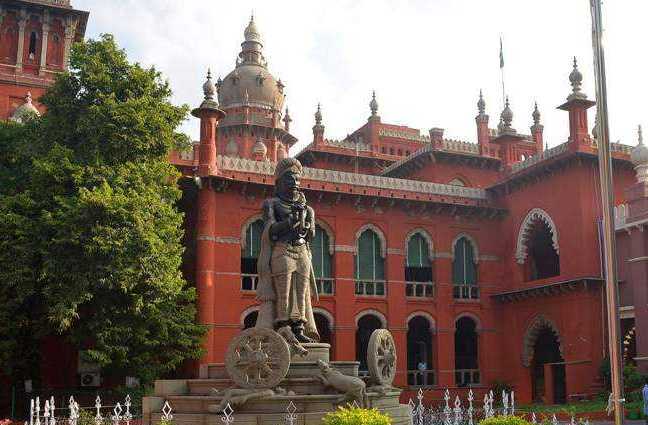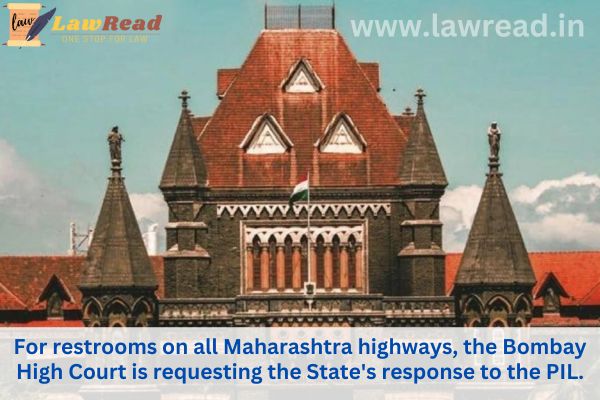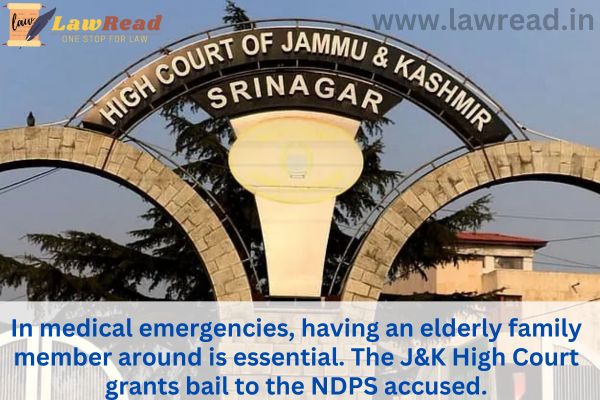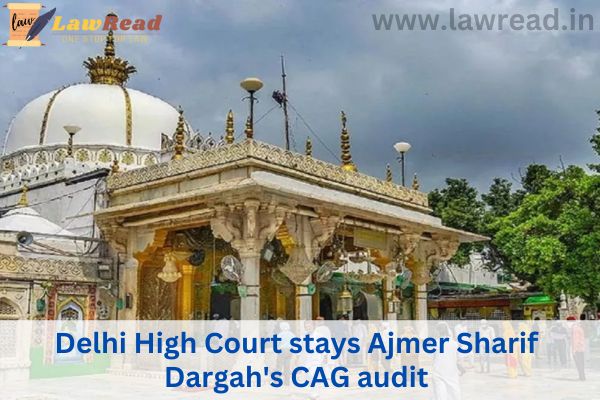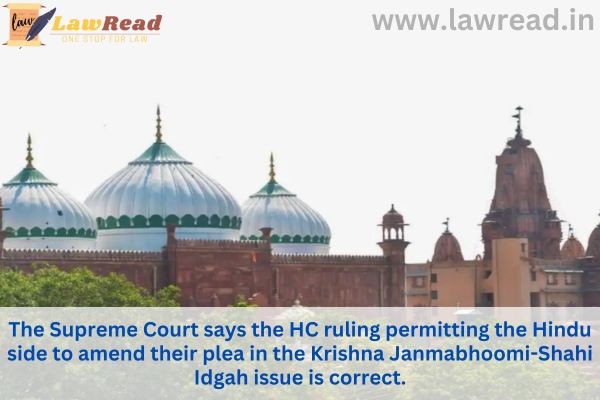News
The Supreme Court says the HC ruling permitting the Hindu side to amend their plea in the Krishna Janmabhoomi-Shahi Idgah issue is correct.
The Court made this statement during the hearing of the Muslim side's appeal against the High Court's decision to permit the change.
.jpg)
The Allahabad High Court's ruling in the Shahi Idgah-Krishna Janmabhoomi case, which permitted the Hindu side to amend their plaint and include the Archeological Survey of India (ASI) as a party, was deemed prima facie correct by the Supreme Court on Monday [Committee of Management Trust Shahi Idgah vs Bhagwan Shrikrishna Virajman Next Friend and ors].
When the Muslim side appealed the High Court ruling, a bench consisting of Chief Justice of India (CJI) Sanjiv Khanna and Justice PV Sanjay Kumar made the observation.
"One thing is evident. The Bench stated orally that the Hindu plaintiffs' amendment to the original plaint must be accepted.
The Hindu side petitioned the High Court with a new argument, stating that the contested building is a protected monument under the ASI and is therefore exempt from the Places of Worship Act's protection. They stated that as a result, it cannot be used as a mosque.
As a result, in March of this year, the High Court granted their plea to include ASI as a party to the case.
As a result, the Muslim side filed an appeal with the Supreme Court.
On April 4, the Hindu parties received notification from the supreme court regarding the appeal that the Muslim side had filed.
The Supreme Court stated during today's hearing that the Muslim side's argument appeared to be misguided.
"This plea is completely incorrect. The highest court said that the High Court ought to have approved the revision that added the parties to the lawsuit.
In the end, the Court postponed the hearing and gave the Muslim side more time to submit its written testimony.
In order to include ASI as a party to the dispute, the Hindu side first petitioned the High Court. They also requested that their original plaint be amended.
They asserted that a notification from the United Province's Lieutenant Governor in 1920 designated the mosque as a protected monument. Section 3 of the Ancient Monument Preservation Act was used to make the notification.
They said that the location cannot be used as a mosque and that the Places of Worship Act, 1991 will not apply in this instance.
By prohibiting courts from considering matters that raise questions about the nature of such houses of worship, the houses of Worship Act aims to preserve the status of all religious institutions as they existed on the date of independence (August 1947).
By prohibiting courts from considering instances that raise questions about the nature of such houses of worship, the law, which was introduced during the height of the Ram Janmabhoomi agitation, aims to preserve the status of all religious institutions as they existed on the date of independence.
The Hindu parties' modification request was rejected by the Muslim side. They asserted that it was an effort to disprove the Muslim side's defense, which was based on the Places of Worship Act.
"The proposed revisions demonstrate that the Plaintiffs are trying to establish a new case in order to refute the Defendant's defense that the suit is prohibited under the Places of Worship Act 1991. The Muslim side contended that the plaintiffs were changing their plaint in an attempt to circumvent the defendant's defense that the lawsuit was forbidden under the Places of Worship Act of 1991.
On March 5, however, the Hindu side's application was granted by the High Court, which also allowed them to change their argument and include ASI as a party in the lawsuit.
As a result, the top court heard the appeal.
After the Hindu side (plaintiffs) filed a lawsuit in the civil court, arguing that the Shahi Idgah Masjid (mosque) was constructed on Krishna Janmabhoomi property, the conflict over the edifice itself began.
Bhagwan Shri Krishna Virajman, a Hindu divinity, and several of his followers initiated the legal lawsuit. The plaintiffs wanted the mosque to be taken down from its existing location.
In addition, the plaintiffs asserted that there were numerous signs indicating the Shahi-Idgah Mosque is, in fact, a Hindu temple. As a result, a request to designate a commissioner to inspect the site was submitted to the High Court.
A civil court first dismissed the main action in September 2020, citing the Places of Worship Act of 1991's prohibition on admittance.
But following an appeal to the Mathura District Court, this ruling was reversed.
In May 2022, the Mathura District Court ruled that the lawsuit could be continued. Later, in 2023, the case was moved to the High Court.
The Allahabad High Court's decision to grant the Hindu side's motion for the consolidation of the suits and their transfer from the civil court to the High Court was challenged in an appeal by the Muslim side before the Supreme Court.
An appeal against the recent Allahabad Court ruling that declared 18 lawsuits pertaining to the Krishna Janmabhoomi-Shahi Idgah Masjid issue maintainable has also been brought before the Supreme Court.
In the meantime, the nation's highest court ordered courts nationwide in December of last year to refrain from issuing any surveys or effective measures against religious organizations that are already in place in cases that contested their religious nature.
According to the Court, the Places of Worship (Special Provisions) Act of 1991 specifically forbids the filing of these lawsuits, and they cannot be filed until the law's legality has been determined.
In a different case that contested the legality of the 1991 Act itself, this order was issued.
As a result, judges in cases like the Shahi Idgah case were not issuing any effective orders.

